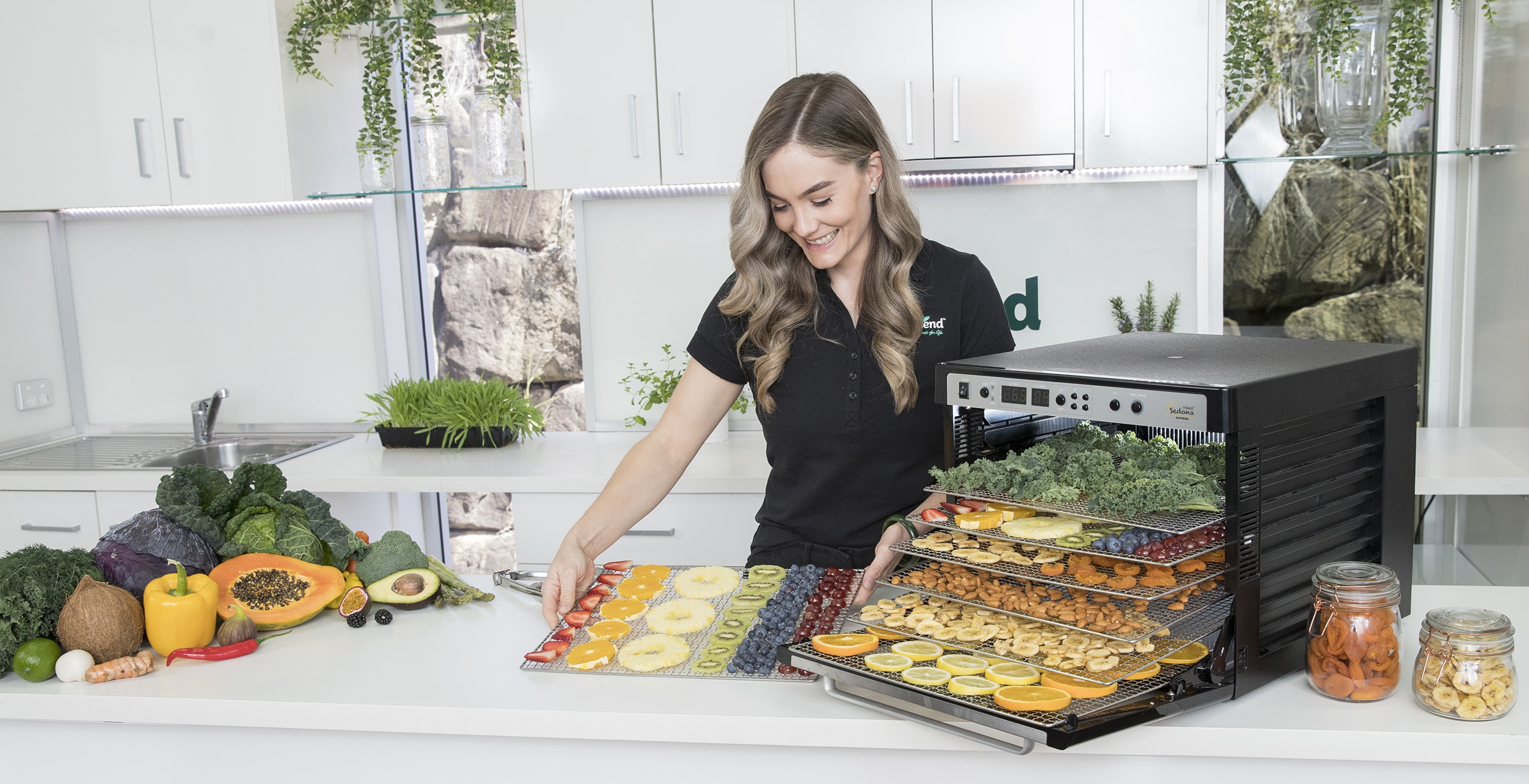Late night hunger is all too familiar for many people. Whether from skipping dinner, having a hectic schedule, or simply being a night owl, rumbling hunger pangs can strike at any hour. Heading to bed on an empty stomach can make falling asleep a challenge.
Having nutritious and easy late night snack options ready can prevent poor snack choices when cravings hit. The key is finding foods that are filling yet moderately low in calories, providing lasting energy without causing sluggishness or disruption to sleep.
This comprehensive guide covers:
- Common causes of late night hunger
- The downsides of typical late night snack choices
- What makes an ideal late night snack
- Nutrient-packed late night food and recipe ideas
- Tips for curbing midnight munchies
What Causes Late Night Hunger?
Feeling hungry late at night or in the wee hours of the morning is very common. There are several reasons this can occur:
- Skipping meals – When you don’t eat enough throughout the day, especially at dinner, nighttime hunger is inevitable. Going too long without eating causes your blood sugar to drop, triggers hunger hormones, and leads to cravings.
- Eating dinner too early – For many people, eating dinner before 7 p.m. leads to hunger a few hours later. Having an early dinner means your body has used up that fuel by late evening.
- High-calorie dinner – Consuming a large, carb-heavy dinner can initially satisfy you but cause blood sugar crashes later at night. High fat foods also digest more slowly, so hunger comes back more quickly.
- Stress or anxiety – Stress and anxiety can disturb hormones that regulate hunger and appetite, leading to increased cravings, especially for sugary or salty foods.
- Exercise – Vigorous late afternoon or evening workouts burn significant calories, fueling greater hunger at night.
- Sleep deprivation – Not getting enough sleep alters hunger signaling in the body, increasing cravings for energy-dense foods high in carbs and fat.
- Certain medications – Some medications like steroids, antidepressants, and antipsychotics increase appetite and hunger as a side effect.
- Age – As we age, levels of appetite-regulating hormones like cholecystokinin decline, often leading to increased nighttime hunger.
- Night eating syndrome – This disorder causes people to compulsively eat large amounts late at night, often while awake from sleep. It requires medical intervention.
- Pregnancy – Hormone fluctuations and increased calorie needs during pregnancy commonly cause middle of the night hunger.
Dangers of Typical Late Night Snack Choices
When late night hunger strikes, it’s tempting to reach for readily available treats like ice cream, cookies, chips, fast food, and candy. However, typical late night snack choices like these can lead to negative consequences:
- Weight gain – The excess calories, fat, sugar and salt in ice cream, baked goods, greasy fast food, candy and chips contribute to overall increased calorie intake and fat storage.
- Blood sugar rollercoaster – Heavily refined carbs and sugar cause quick blood sugar spikes followed by crashes, fueling cravings for even more junk food at night.
- Fatigue and sluggishness – Heavy, greasy snacks can leave you feeling weighed down and lethargic. This makes it even harder to fall back asleep.
- Heartburn – Common favorites like ice cream, cheese, pepperoni pizza, and buffalo wings can trigger heartburn, disrupting sleep.
- Dehydration – Salty, starchy junk foods lead to dehydration, causing uncomfortable thirst that further interrupts sleep.
- Restless sleep – Too many calories close to bedtime raises body temperature and heart rate, making it difficult to fall and stay asleep.
- Impaired digestion – Your digestion significantly slows down while sleeping. Eating large amounts right before bed overworks your GI tract and can cause discomfort.
- Increased inflammation – Processed carbs and sugar trigger inflammatory responses in the body linked to chronic diseases like diabetes and heart disease.
- Nutrient imbalance – Late night empty calorie foods lack nutrients needed for healthy sleep, stress coping, and next-day energy.
- Morning sluggishness – Waking up feeling groggy and tired signals your late night snacks weren’t properly fueling your body and mind.
What Makes an Ideal Late Night Snack?
To avoid the negative effects of typical late night binging, the best snacks offer a balance of protein, fiber, and healthy fats. These nutrients work synergistically to promote satiety, stabilize blood sugar, and supply lasting energy.
Here are characteristics that make up a satisfying and nutrition-packed late night bite:
- Around 300 calories – Aim for a snack no more than 300 calories to avoid overeating and unwanted pounds. This gives enough to curb hunger without an excess influx of energy.
- At least 5 grams protein – Protein provides the amino acids needed to balance brain chemistry, relax muscles, and manufacture neurotransmitters that aid sleep.
- 5+ grams fiber – Fiber normalizes blood sugar levels, preventing energy crashes and sugar cravings later in the night.
- Provides unsaturated fats – Healthy fats from nuts, seeds, avocado and olive oil help control appetite by slowing digestion. They also support hormone and neurotransmitter production.
- Low in sugar – Minimizing added and natural sugars prevents blood sugar spikes and crashes leading to ravenous late night cravings.
- Contains complex carbs – Carbs from whole grains, fruits and vegetables offer sustained energy and fiber without fat and sugar overload.
- Provides magnesium & calcium – These essential minerals calm the nervous system and muscles to promote relaxation. Deficiencies are linked to insomnia and sleep disturbances.
- Packed with antioxidants – Antioxidants reduce inflammation, improve stress resilience, and may enhance circadian rhythms involved in sleep-wake cycles.
- Easy to digest – Nutritious yet gentle foods are key before bed so your body isn’t overloaded digesting and disturbing sleep.
- Quick and simple – Look for late night bites that are fast and easy to throw together when hunger strikes.

15 Nutrient-Packed Late Night Foods and Recipes
Keeping healthy, satisfying snacks on hand is key to avoid slipping into poor late night eating habits. Here are 15 of the top foods and quick recipes to curb midnight munchies:
1. Turkey and Cheese Roll-Ups
Roll up 2-3 ounces sliced turkey breast and 1 ounce sliced cheddar or swiss cheese in a whole grain tortilla or lettuce leaf. The protein keeps you full and carbs steady. Pair it with raw vegetables and hummus for added nutrition.
2. Peanut Butter on Whole Grain Toast
Choose natural peanut butter to avoid added sugars. Spread 2 tablespoons over 1-2 slices of 100% whole grain bread. Add banana slices on top for extra potassium and fiber. The healthy fats and complex carbs offer sustained energy.
3. Greek Yogurt Parfaits
Layer 1 cup nonfat plain Greek yogurt with 1⁄2 cup mixed berries and 1 tablespoon chia seeds. The protein-packed yogurt with fiber and antioxidants makes a perfectly portioned, nutritious bite.
4. Veggie Omelet with Cheese
Whisk 2 eggs with spinach, mushrooms, onions, tomatoes and 2 tablespoons shredded low-fat cheddar. Cook in an olive oil-coated pan for a personalized omelet full of protein and nutrients.
5. Cottage Cheese with Fruit
Top 1⁄2 cup cottage cheese with strawberries, blueberries, sliced banana, pineapple, or other fruits. The calcium and casein protein curb hunger while the natural sugars aid sleep hormones.
6. Apple Slices with Nut Butter
Dip apple slices into 2 tablespoons natural almond or peanut butter. Apples contain carbs to boost serotonin plus fiber to steady energy. Nut butters add protein, healthy fats and minerals.
7. Whole Grain Cereal and Milk
Choose a cereal with at least 5 grams fiber per serving and pair with unsweetened almond milk or Greek yogurt. Add your own fruit if you want added sweetness. The whole grains give steady, long lasting energy.
8. Egg Salad Lettuce Wraps
Mash 2 hard boiled eggs and mix with 2 teaspoons olive oil mayo, diced celery, onion, mustard, salt and pepper. Spoon egg salad mixture into lettuce leaves for a protein-rich, veggie-packed snack.
9. Avocado Toast
Mash avocado onto a slice of whole grain toast. Top with cracked pepper, red pepper flakes and hemp seeds for healthy fats, fiber and nutrients to stabilize blood sugar and energy.
10. Banana Smoothie
Blend 1 frozen banana, 1 cup Greek yogurt, 1 cup milk, 1 tablespoon nut butter, 1 teaspoon cinnamon and ice. The balance of carbs, protein and healthy fats promotes satiety.
11. Veggies and Hummus
Dip sliced bell peppers, carrots, broccoli and cauliflower into 1⁄4 cup hummus. Fiber-rich veggies plus plant-based protein and healthy fats make a filling combo.
12. Oatmeal with Nuts and Fruit
Cook 1⁄2 cup old fashioned oats with water. Top with 1 tablespoon chia seeds, chopped walnuts, cinnamon and sliced banana. Whole grains give steady energy and fiber.
13. Cottage Cheese and Rice Cake
Top a brown rice cake with 1⁄4 cup cottage cheese and sliced strawberries or bananas. Enjoy a tastes-like-dessert snack with carbohydrates that help tryptophan entry to the brain.
14. Trail Mix
Make your own trail mix with unsalted nuts, mini dark chocolate chips, shredded coconut, pumpkin or sunflower seeds. Healthy fats help control appetite while chocolate triggers serotonin.
15. Ricotta with Berries and Honey
Mix together 1⁄4 cup part-skim ricotta cheese, 1⁄4 cup mixed berries, and 1 teaspoon honey. The whey and casein protein provide a steady supply of amino acids to relax the body.
7 Tips to Prevent Late Night Binges
In addition to keeping healthier snacks on hand, making certain lifestyle adjustments can reduce midnight munchies and promote satiety. Here are 7 simple yet effective ways to curb the urge to binge late at night:
- Don’t skip meals – Eat regular, balanced meals with a mix of protein, carbs and fat throughout the day, especially getting enough quality nutrition at dinner.
- Avoid evening workouts – Exercising vigorously in the late afternoon or evening creates a calorie deficit that fuels hunger pangs later at night.
- Limit alcohol – Drinking excessively drops blood sugar and releases stress hormones that stimulate appetite and slow metabolism.
- Increase probiotic foods – Probiotic-rich foods like yogurt, kefir, kimchi and kombucha balance hunger hormones and reduce cravings.
- Manage stress – Unmanaged daily stress elevates levels of the hormone cortisol, increasing hunger and fat storage.
- Get enough sleep – Chronic sleep deprivation throws off hormones that regulate hunger, increasing the drive to overeat.
- Hydrate well – Dehydration can feel similar to hunger, so be sure to drink enough water during the day. Herbal teas can also curb hunger.
The combination of nutritional late night snacks plus lifestyle adjustments gives you the best chance to prevent midnight binges and their adverse effects. Paying attention to your hunger cues, nutrition needs, and sleep rhythms allows you to satisfy cravings healthfully.
With the right foods and habits, late night hunger doesn’t need to sabotage your goals or disrupt sleep. You can feel nourished and satisfied into the wee hours while providing your body the fuel it requires. Keep this guide handy so you always have energy-promoting snack ideas ready to tame midnight munchies in a nutritious way.










